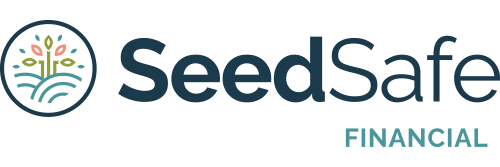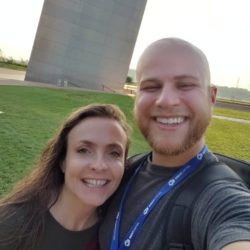First off – CONGRATULATIONS! Considering buying a vacation home means you feel comfortable financially and that is a wonderful feeling.
Now, before you start browsing listings and envisioning lazy days by the beach, it’s important to carefully consider whether purchasing a vacation home aligns with your financial goals.
- Do you have your financial foundation in place?
- What will the vacation home bring to your life? What will it take away?
- Is this an investment or a pure cost?
- What can I afford?
We like to think of finances in a hierarchy.
First, you need a strong financial foundation to know you are secure and can meet your basic needs of shelter, food, etc.
Then, you can focus on financial flexibility. Financial flexibility is taking a big breath, centering your mind, and focusing on what your most fulfilling life is. Then, you focus on aligning your values with your money.
This may mean focusing on your kids – private school, college funding, getting your time back to spend making memories with them.
And/or it may mean more time flexibility – leaning into travel, sabbaticals, or a different career path.
For many of our clients, this is where thinking about a vacation property comes into play.
What do you feel you will enjoy most from owning a vacation home?
Often I hear:
…a place to gather family,
…to make memories with my kids,
…a place to ‘just’ be and not be subject to the city hustle, etc.
These beautiful visions bring my clients peace. And we want to keep it that way by exploring some of the key factors to make an informed decision.
Evaluating your Finances for a Vacation Home
First and foremost, evaluate your finances. Can you afford to purchase a vacation home without compromising your other financial goals?
- Do you have a good emergency reserve in place?
- Are you on track for college funding?
- Have you already maxed out your company benefits and retirement accounts?
- What additional cash flow can you put towards this investment on an ongoing basis?
- Are there any other large expenses coming down the road in the near future?
Next, consider the total cost of owning a vacation home. This includes not only the purchase price but also ongoing expenses in maintaining it. Property taxes, homeowners insurance, maintenance, utilities, and possibly association fees.
Will you get a mortgage on the property? What is your total debt to income ratio now? Would you qualify for it based on your current finances? Vacation home properties aren’t the same as primary homes. They generally experience higher interest rates and require larger down payments as second homes.
If you are looking at a beach home or ranch property, the rate of increasing costs may also be in question. How much has the homeowners insurance and association fees gone up annually? Many beach home communities are finding their insurance rates skyrocket at 40% a year the last few years. This is something you want to know for future planning.
Another consideration beyond the home is how are you getting there? Will you be able to drive or do you need to fly to get there? Fuel and wear-and-tear on your car while driving to and from the vacation home and a larger dining out budget may factor into your decision.
What kind of activities do you plan on pursuing there? Does this lead to a membership at a ski lodge or a boat purchase?
What may feel like buying a vacation home can lead to buying a vacation lifestyle. Know the all in cost.
Evaluating the Investment Opportunity of a Vacation Home
To lessen the overall cost, could it be an investment property? If you are considering renting out the property, you will need to add a rental income estimate to your calculation. What is thee rental demand in the area? Are there seasonal fluctuation?
Renting out the home can often lessen the total price tag of a vacation home but can lead to more hassle if you aren’t ready for that step.
- Will you offer the property as a short term rental? What will be your minimum stay requirement?
- How will you manage the property? Will you hire a property manager or will you personally manage it?
- Will you give up holidays for higher rental income periods? When will you use it?
Once you estimate the vacation home revenue and costs, it’s time to dive deeper. Now, it’s time to dive into what your return on investment (ROI) and cash-on-cash return would be for the investment property. There are many real estate investment calculators available. The hardest part is deciding what numbers to put into the calculator 🙂
To learn more about the investment property side of real estate, we recommend checking out Bigger Pockets, the Real Estate Rookie Podcast, and Wharton school’s certificate program (if you are looking to make this your encore career).
What Can YOU Afford?
Now that you’ve evaluated your personal finances and the investment opportunity, it’s time to ask yourself what you are willing to do in trade-offs…
…Knowing this, what is possible now?
Depending on the area, I’ve calculated the annual cost for clients (even with rental income) to be $50,000+ for the pleasure of owning the home.
What would it cost to rent an AirBnB in the same area? Could you come up with an even nicer travel tradition for your family for less than $50,000?
Additionally, think about your long-term plans and lifestyle preferences. Are you committed to returning to the same vacation spot year after year? Or do you prefer the flexibility of exploring different destinations?
If you have small kids, what are your hopes for them growing up? Many kids activities can take over weekends with competitions and practice.
For our clients, my favorite YES BUY IT! moments are when we create a P&L and look at the return on investment of renting the property out less than half the year, and using it for the remainder of time.
If the ROI and cash-on-cash return are still positive at that level, I know the property can function as an investment property in a worse case scenario.
Buying a vacation home can be a rewarding investment and lifestyle choice, but it’s essential to carefully weigh the financial considerations and ensure it aligns with your overall financial plan.
The above discussion is for informational purposes only. Recommendations are of a general nature, not based on knowledge of any individual’s specific needs or circumstances, and there is no intent to provide individual investment advisory, supervisory or management services.






